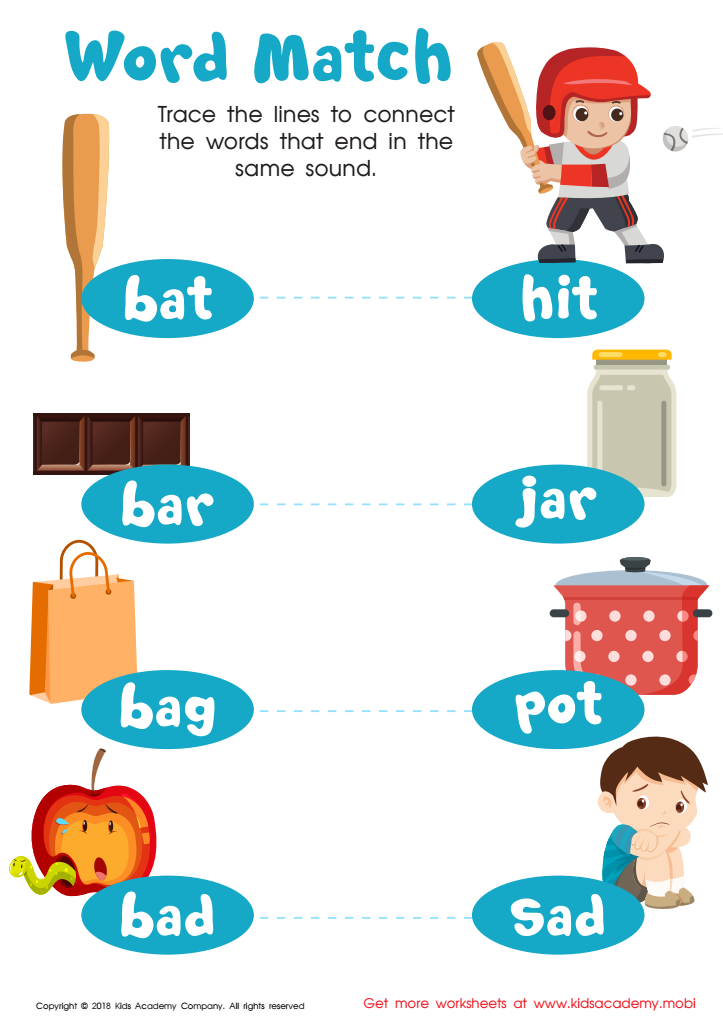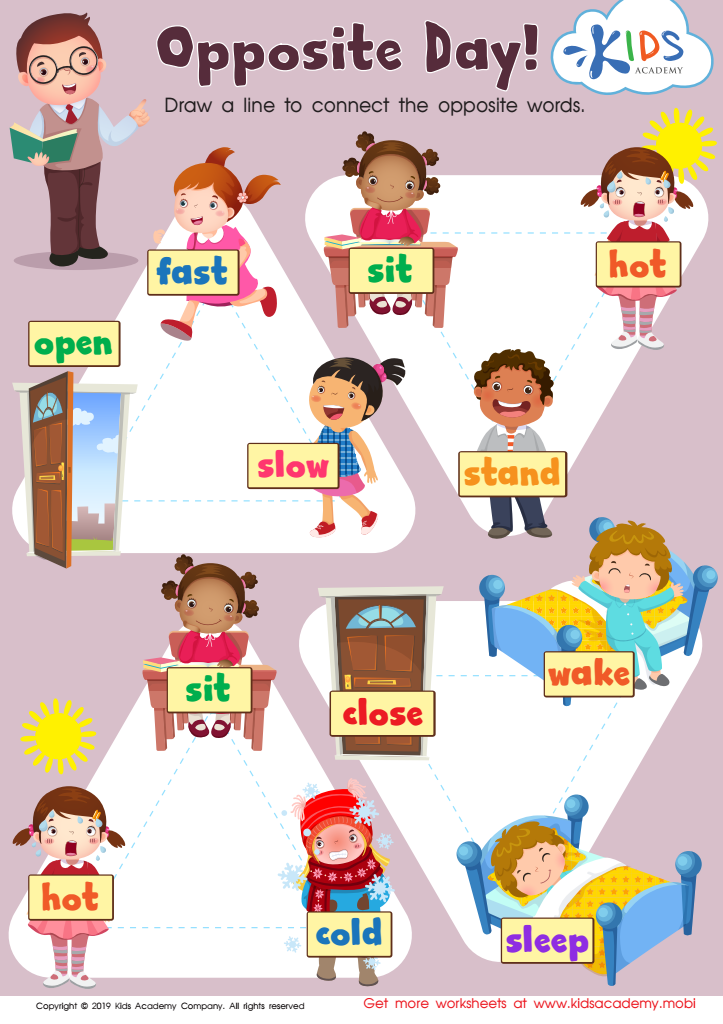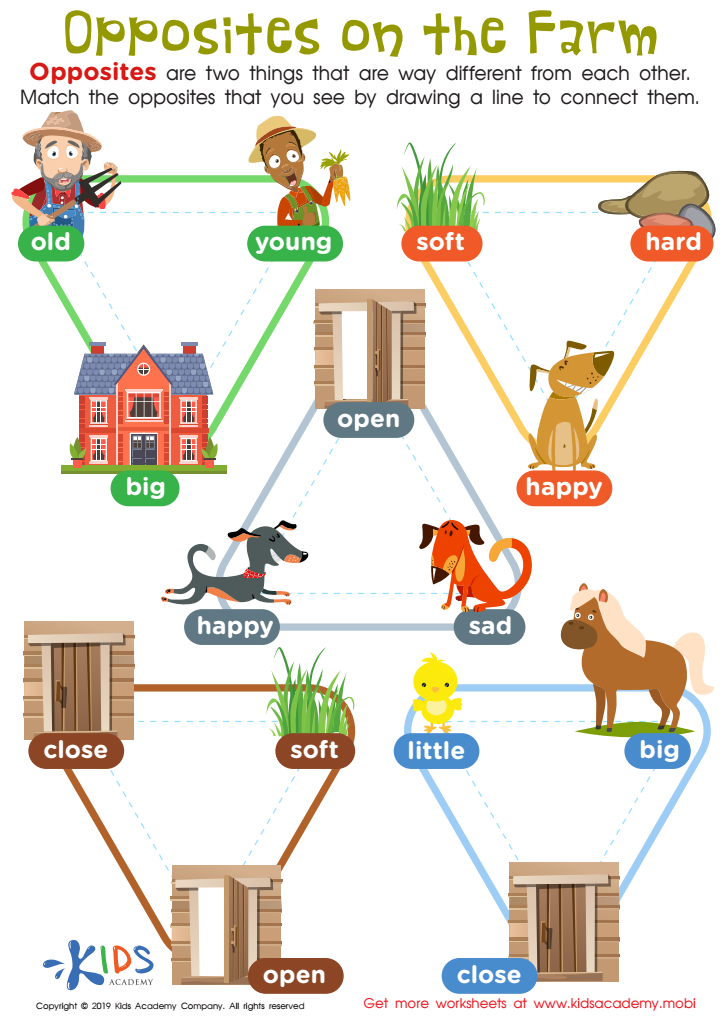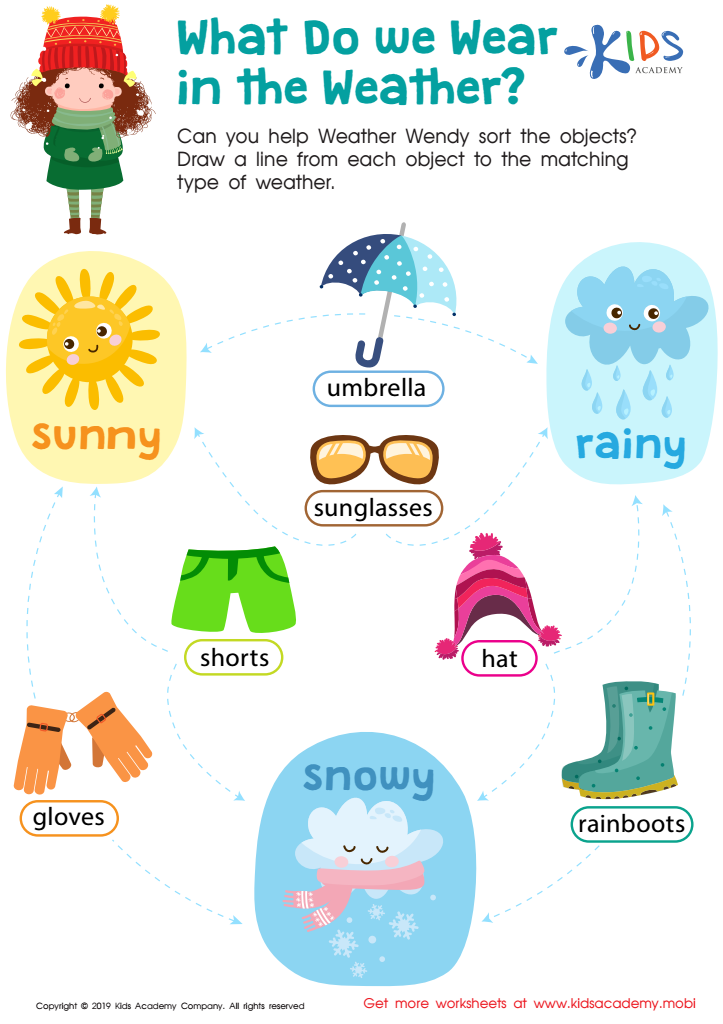Cognitive Development Normal Building Vocabulary Worksheets for 4-Year-Olds
4 filtered results
-
From - To
Enhance your child's language skills with our Cognitive Development Building Vocabulary Worksheets designed for 4-year-olds! These expertly crafted worksheets are tailored to boost early vocabulary and foundational cognitive abilities. Engaging and interactive, each worksheet offers fun exercises and activities that stimulate word recognition, comprehension, and usage. Perfect for preschoolers, our resources support critical brain development and prepare your child for academic success. Available for easy download, these worksheets are a valuable tool for parents and educators dedicated to nurturing young learners. Trust Kids Academy and watch your child's vocabulary grow and thrive!


Word Match Reading Worksheet


Opposite Day Worksheet


Opposites on the Farm Worksheet


What Do We Wear in the Weather? Worksheet
Parents and teachers play a crucial role in fostering cognitive development and vocabulary building in 4-year-olds. At this age, children's brains are highly receptive, navigating significant growth in their language and cognitive abilities. Ensuring they build a robust vocabulary is foundational for their future academic success and social interactions. Vocabulary development aids in better comprehension and communication skills, which are pillars for learning to read, understanding instructions, and expressing thoughts and emotions.
Engaging with children through reading, conversation, and play provides rich language exposure and stimulates brain development. Activities like storytelling, singing, and interactive games contribute to cognitive skills such as memory, problem-solving, and critical thinking. Without a strong vocabulary foundation, children may struggle academically, as difficulties in understanding language can impede learning across subjects.
Moreover, a strong vocabulary enhances social development, allowing children to convey their needs and thoughts distinctly, fostering positive peer relationships and reducing frustration and behavioral issues. Early childhood is a pivotal period for brain plasticity, making it imperative for parents and teachers to capitalize on this time to model diverse and expressive language use. By prioritizing cognitive development and vocabulary building, we set the stage for children to become competent learners and effective communicators, paving the way for lifelong educational and social success.
 Assign to My Students
Assign to My Students


























